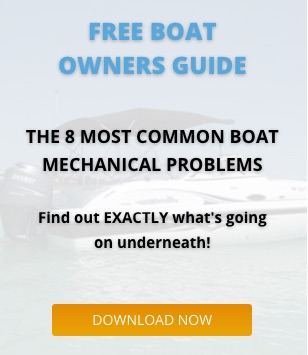Every now and then, we hear stories about people who’ve fallen off boats while out on the water and drowned due to improper or unsafe responses – or just plain bad luck. If you want to ensure that this doesn’t happen to a friend or family member out on your boat, take a read of these steps you can take.
DO: Have the right safety equipment available
It might be bulky. It might get in the way when you’re trying to pack just one more esky into the boat. But even though it’s usually unnecessary, safety equipment can be a vital difference between your mate surviving and drowning. We recommend the following gear, in order of priority:
- PFD (personal flotation device, or life jacket), equipped with a whistle and light, worn by each person on the boat. They’re very little use stowed under a seat!
- GPS receiver. Worst case scenario, this can help search parties pinpoint where the person went overboard.
- VHF radio. You need to be able to contact other boats and the local Coast Guard.
- Lifebuoys. If someone goes overboard and the boat is travelling slowly enough, these can be thrown to keep someone afloat while you pull them back in.
- Strong torch or mounted spotlight. In the evening or night time, you’ll need to be able to see the person in the water in order to rescue them, and to avoid hitting them.
- Floating lights/small buoys. Murphy’s Law being what it is, if someone falls overboard, it will probably be when the boat’s moving at a fair clip. This can mean that the person is out of sight and reach quite quickly. Throwing out floating markers while the boat’s still in motion can help you to backtrack more quickly.
DON’T: Ride on the prow of the boat
There are a lot of things that seem like great fun until they end in disaster – especially when alcohol is involved. One of these is re-enacting the famous scene from Titanic where Rose and Jack stand at the very prow of the Titanic and Jack yells, “I’m the king of the world!” Cute it might be, and exhilarating, but falling from the prow when the boat’s moving will usually cause a person to go under the boat and potentially through the motor(s), leading to a pretty nasty experience that rivals Jack’s hypothermia.
DO: Stop or turn immediately
The first problem that occurs when someone falls overboard is that the boat is generally moving at the time, taking the boat away from the victim at a speed much faster than they can swim. Turning the motor off is generally a good idea if you were travelling fairly slowly – it cuts down on the chance that an inexperienced person will get too close to the motor or propellor.
DON’T: Take your eyes off them if at all possible
If you’re at sea, it can be very difficult to locate someone once you drift apart a little. Assign one person to watch their location at all times. If it’s dark or getting dark, use a strong torch or spotlight to mark them. If the boat was going at speed when they fell in, keep throwing out buoys or lights in their general direction, so that you can follow a rough path back to them.
DO: Provide flotation assistance
If someone falls into the water, they’ll need help staying afloat. If they’re already wearing a PFD, then they’re pretty much covered. If not, throw out a buoy or even if desperate an esky – anything that will float and help keep their head above the water line.
DON’T: Speed back towards them if you’re not sure where they are
Go slow unless you’re very, very certain of their location. Hitting them with a boat will not improve the situation at all.
DO: Alert other boats in the area
In a recreational boating area, one of the biggest dangers in falling overboard comes from other boats (and possibly your own). Put out a call to other boats, alerting them to someone in the water and their approximate location.
DO: Call the Coast Guard
If it’s taking more than a couple of minutes to find them, or it’s cold, call in the Coast Guard to help. Even if you find them before the Coast Guard arrive, they could have water on the lungs or hypothermia, and require first aid.



